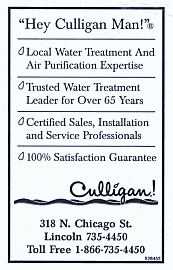|
Emergency measure by state of
Illinois ensures no low-income Medicare Part D beneficiary is turned
away at pharmacy
Seniors provided critical protection
while kinks in federal program are addressed
 Send a link to a friend
Send a link to a friend
[JAN. 13, 2006]
CHICAGO -- Gov. Rod R. Blagojevich announced
Thursday that Illinois will cover the cost of prescription drugs for
dual-eligible citizens -- those enrolled in Medicare and Medicaid --
who were otherwise being turned away from pharmacy counters across
the state due to glitches in the new federal Medicare Part D drug
program. Adding to the ongoing efforts of the Blagojevich
administration, this new safety net will ensure seniors and people
with disabilities won't go without the drugs they need while the
federal government corrects discrepancies with enrollees' records.
|
|
"It's unacceptable that
any Illinois senior or disabled person who is entitled to Medicare's
low-income drug coverage is leaving pharmacies without the
prescription drugs they depend on," Blagojevich said. "Hopefully the
glitches with the federal program will be worked out soon, but until
then, we're going to take care of those who need their prescription
drugs to remain healthy." Since the new Medicare Part D program
began on Jan. 1, many dual-eligible seniors and people with
disabilities have been complaining that their pharmacists had no
record of their Medicare Part D enrollment or that they were being
charged prices they simply couldn't afford because the pharmacist
did not have information on their low-income subsidy eligibility.

Now, if a pharmacist is having problems properly billing the
Medicare prescription drug plans for someone who is dually eligible
or if the low-income eligibility information is lacking, they can
call or fax the individual's information to the Illinois Department
of Healthcare and Family Services. On a case-by-case basis, the
department's staff will work with the pharmacist to solve the
problem. If the problem can't be fixed quickly, the state will cover
the cost of the prescription drugs directly and then seek
reimbursement from the prescription drug plan the patient is
assigned to. Under the new system, no dual-eligible senior or
disabled person will leave a pharmacy without the medications they
need.
 "We will continue to provide this critical protection to our
seniors until the problems with the new Medicare program are worked
out," said Barry Maram, director of the Department of Healthcare and
Family Services. "We will continue to provide this critical protection to our
seniors until the problems with the new Medicare program are worked
out," said Barry Maram, director of the Department of Healthcare and
Family Services.
[to top of second column] |
 After a pharmacist has provided the details of a case, Healthcare
and Family Services, when necessary, will temporarily recode the
individual's eligibility so that the claims will be paid directly by
the department. Once proper billing information becomes available
for the patient, pharmacies will void their claims to department and
then bill the prescription drug plan directly.
Blagojevich continues to encourage senior citizens and people
with disabilities to take advantage of the benefits of the Illinois
Cares Rx and Medicare Part D prescription drug benefits. The
governor also urged Illinoisans to use the state resources in
navigating the new Medicare program's enrollment process.
The governor's ongoing efforts to help seniors through the
Medicare Part D program are part of his long-standing effort to make
sure that more people get more health care and better benefits;
protect coverage for those who have health care; and help hospitals,
doctors and nurses provide better health care. Under the Blagojevich
administration, Illinoisans benefit from a wide array of programs
designed to assist them with the high cost of prescription drugs:
SeniorCare, Circuit Breaker (now Illinois Cares Rx), the Rx Buying
Club and the I-SaveRx drug importation program.
[News release from the governor's
office]

 |